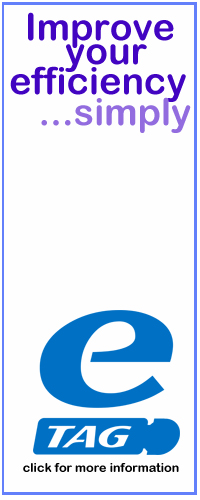I recently read an article by the BBC’s long-standing global business correspondent Peter Day. The piece was based on the BBC Radio 4 programme he hosts called World of Business. Entitled The World Turned Upside Down it elucidates Day’s reflections based on conversations he has had with leading business thinkers over the last 10 years. Its central thesis is that we are at the start of a post-industrial revolution – an era in which the business winners will be those that can precisely meet the needs of many, many small groups of like-minded individuals – an era of Mass Customisation: http://www.bbc.co.uk/news/magazine-23990211
He contrasts the newly emerging era with the industrial revolution and specifically the founder of Ford Motor Company, Henry Ford, who pioneered efficient mass production and mass distribution. To be a major company you needed to sell your products to the maximum number of people wherever they are in your home market and around the globe.
The techniques of mass production and mass marketing pioneered by Henry Ford are still being played out by big business in the West today. But the nature of manufacturing, in the developed world at least, is changing now that manufacturers have worked out that no matter how much they improve production methods; build standardised parts; and cut prices through the supply chain - they can never compete on price with the developing world: the BRIC economies of Brazil, Russia, India and China, for example.
So what is the future of making things in the UK and the rest of the developed world I hear you ask? The answer appears to lie in focusing on creating systems and machines to help us customise products cost-effectively; work more collaboratively to innovate – globally if necessary; and of course listen to customers more acutely to ensure that we deliver exactly what they want, when they want it. With all these elements in place, mass customisation is possible. The final key ingredient is high quality. We must achieve that to differentiate ourselves from the new mass producers.
If you delve into the world of manufacturing and industrial automation today, much of the focus is on building production line machines which are capable of rapid retooling and reconfiguring so that products, including cars, can be mass customised. One article I read in a leading industrial automation title Drives and Controls highlighted mass customisation in action at an industrial automation components business called Danfoss where, for over 10 years, “Instead of mass-producing large numbers of standard products and stocking them in warehouses where they wait until an order has been placed”, they instead manufacture individually tailored products to order. Many of the products they manufacture are shipped within 24-hours of orders for them being placed: http://www.capsule-group.com/digital/dac/B310/files/assets/basic-html/page26.html
It’s impressive stuff and clearly requires very sophisticated IT systems combined with precision engineering. Robotics is increasingly used on production lines for this reason.
Stepping away from ‘big manufacturing’, Peter Day talks about the idea of being able to ‘draw and print’ highly customised products. He sees 3D printing as an enabler of mass customisation. It also uncovers why firms like Google have become the business megastars of the age while many dotcoms went by the board.
Google sees the world as all businesses need to see us - the consumer - as individuals or at least small groups of individuals. As one Silicon Valley-based dotcom pioneer Joe Kraus said to Peter Day: "The 20th Century was about dozens of markets of millions of consumers. The 21st Century is about millions of markets of dozens of consumers."
Does that also mean the era of mass media communications is also over? Again not immediately but it is changing as the digital world offers us a whole lot more choice in what we read, listen to and watch. It naturally fragments the audience so mass advertising for example is not as valuable today as it was 10 years ago – the audiences for even the most popular TV programmes are just smaller than they used to be. Even UK national newspaper circulations continue their inexorable declines.
So if all this is happening around us, can we not take some of the lessons learnt in manufacturing or by Google, into a service-led world of car dealerships? I believe the answer is yes.
My advice is start by thoroughly understanding your customer-base. What is their new and used car history and aftersales buying history and what are they not buying from you? Work out why they are not buying. Use everything at your disposal to gather this intelligence – online surveys, questionnaires completed in the dealership or from home.
Once this has been completed and analysed, begin to segment your customers into meaningful groups. So one group might be ‘first time car buyer prospects’, another ‘loyal used car buyer who does not currently buy servicing from us’ etc.
Once this work has been done you can begin to analyse how they would like to be communicated with – are they interested to know about the latest offers on regular servicing or financing options, for example? Tailor the communications specifically to these pools of customers. Don’t be afraid to get to know them much more than you do today. Some of the feedback will be negative but you cannot engage with them more effectively without properly understanding what makes them tick.
Take the example of how many golfers buy golf clubs today. The clubs are custom made to suit the height, weight and swing of each individual. The top five brands have built specialist high tech fitting facilities in golf shops to provide this facility. If you are serious about golf you are likely to go with one of those five brands but at the same time the clubs you get are customised so no two sets are exactly the same. The customer becomes the focal point. The buying experience becomes both an enjoyable and educational one. That sounds like a great model for buying a car.
What about extending that customisation into how you communicate with your customers? Allow them to configure the way they engage with you. Do you track and record every interaction with them and use this information to ‘describe’ them?
Vehicles are already highly configurable, but are your aftersales services equally so? Are your servicing and finance products available for consideration and purchase online? Are they supported with an online chat facility? Can you take service bookings online around the clock? If not, why not now that we are all organising our lives via the web from almost the moment we get up to just before we head to bed?
Even Peter Day is unsure exactly how the new era of mass customisation will pan out for a service-led economy such as the UK. But surely if we continue to innovate by creating new service offerings; get closer to our customers; tailor our offerings to more accurately meet their needs; and treat them more as individuals, then you too can deliver the service equivalent of mass customisation?
Do you think it is possible to ‘mass customise’ your service offerings or is it just about putting out more and more communication across more and more( largely digital) channels – hoping that more will stick? Weapon of choice: blunderbuss or laser-guided missile?


 RSS Feed
RSS Feed




